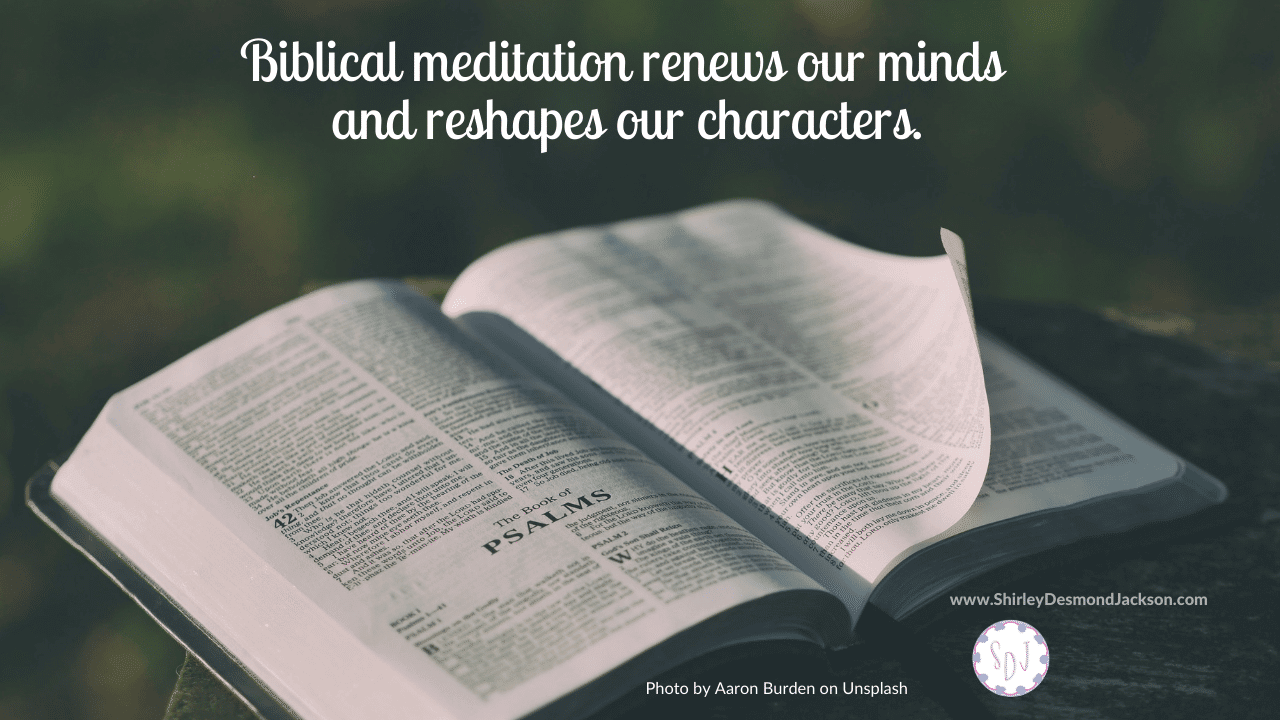Discovering The Lost Art of Biblical Meditation
I once heard a friend say Christians have lost the art of meditation. Although I didn’t disagree, meditation, like rest, runs contrary to my busy lifestyle.
But lately this idea of meditation has resurfaced in my circle of friends.
I often associate the word meditation with eastern religions, yoga, new age philosophies and the current trend of mindfulness. Yet Scripture strongly supports the practice of Biblical meditation.
One of the earliest mentions of meditation is in Genesis 24:62-63:
Now Isaac had come from Beer Lahai Roi, for he was living in the Negev. He went out to the field one evening to meditate, and as he looked up, he saw camels approaching. (ESV)
This verse describes the scene where Isaac will first meet his future bride, Rebekah. A possible definition for the Hebrew word translated as meditate, suach, is muse, which means to become absorbed in thought, or to think about something carefully and thoroughly.
While Isaac waited for Rebekah’s arrival, he may have been meditating and praying about his future life as a husband. His actions illustrate meditation as a normal, routine practice of God’s people.
As we look further in the Bible, we find God commanded His people to meditate:
This Book of the Law shall not depart from your mouth, but you shall meditate on it day and night, so that you may be careful to do according to all that is written in it. For then you will make your way prosperous, and then you will have good success. (Joshua 1:8 ESV)
The Hebrew word used in this verse for meditate, hagah, means to moan, growl, utter, speak, or muse. In this Scripture, God commanded His people to meditate, or muse, on the Book of the Law (Scripture) for a purpose: so they will be faithful in following it.
In return for obedience, God promises prosperity and success. These words may invoke images of earthly wealth, but the meaning here implies success in our walk with God. Although God may choose to bless us with material blessings, we definitely will receive spiritual ones.
Later in the history of God’s people, King David mastered the art of meditation. Before becoming king, David herded his father’s sheep. I believe the long days and nights in the pasture provided many opportunities to meditate on God and His qualities. (Romans 1:20)
David documented his meditations in the psalms he wrote. Sometimes he wrote from exuberance and sometimes from discouragement. But his meditations always pointed him back to the goodness of God:
On the glorious splendor of your majesty,
and on your wondrous works, I will meditate.
They shall speak of the might of your awesome deeds,
and I will declare your greatness.
They shall pour forth the fame of your abundant goodness
and shall sing aloud of your righteousness. (Psalm 145:5-7 ESV)
Because of his devotion and love for God, David became known as the man after God’s own heart. (Acts 13:22) He modeled for us how meditating on God’s nature, His law, and His promises can shape our hearts and characters.
In the New Testament, the Apostle Paul also encourages us to meditate:
Finally, brothers, whatever is true, whatever is honorable, whatever is just, whatever is pure, whatever is lovely, whatever is commendable, if there is any excellence, if there is anything worthy of praise, think about these things. (Philippians 4:8 ESV)
As we meditate on these things, we will transform our thoughts, which will shape our characters. Finally, we will experience the spiritual blessings from following His will:
Do not conform to the pattern of this world, but be transformed by the renewing of your mind. Then you will be able to test and approve what God’s will is—his good, pleasing and perfect will. (Romans 12:2 NIV)
Biblical meditation renews our minds and reshapes our characters.
As I continue down the road, I pray to make Biblical meditation a regular part of my journey. Wherever your path leads you, I pray you can do the same.


Love this… thank you Shirley!
Thank you Suzette! I appreciate your encouragement!